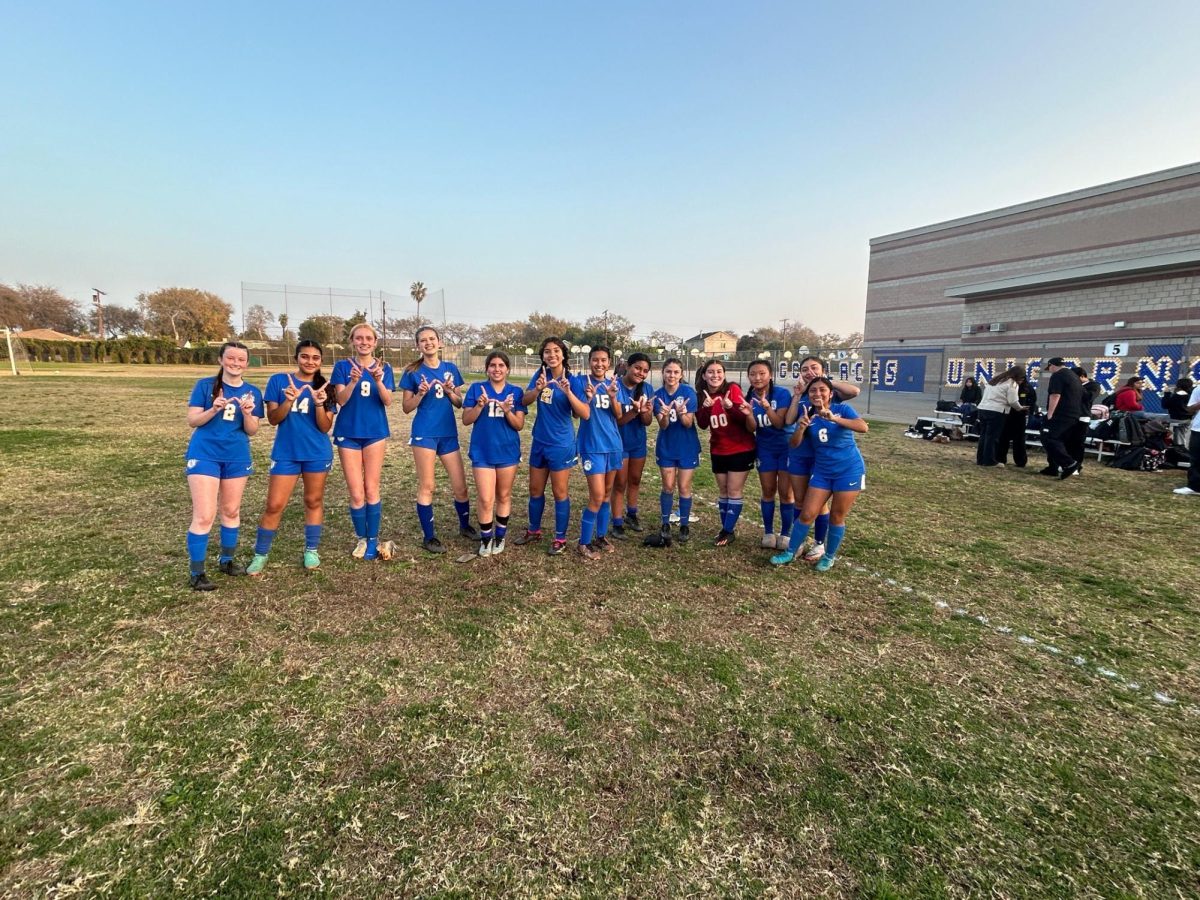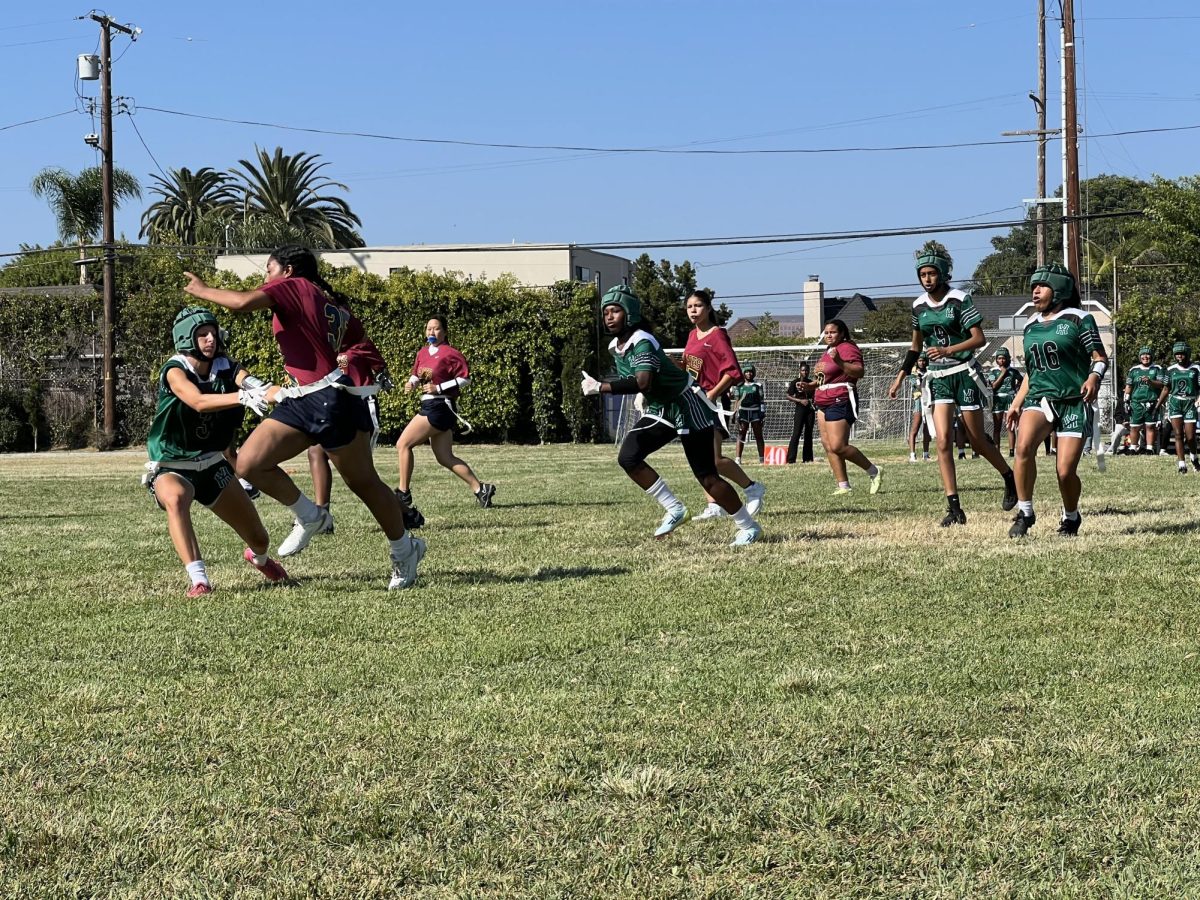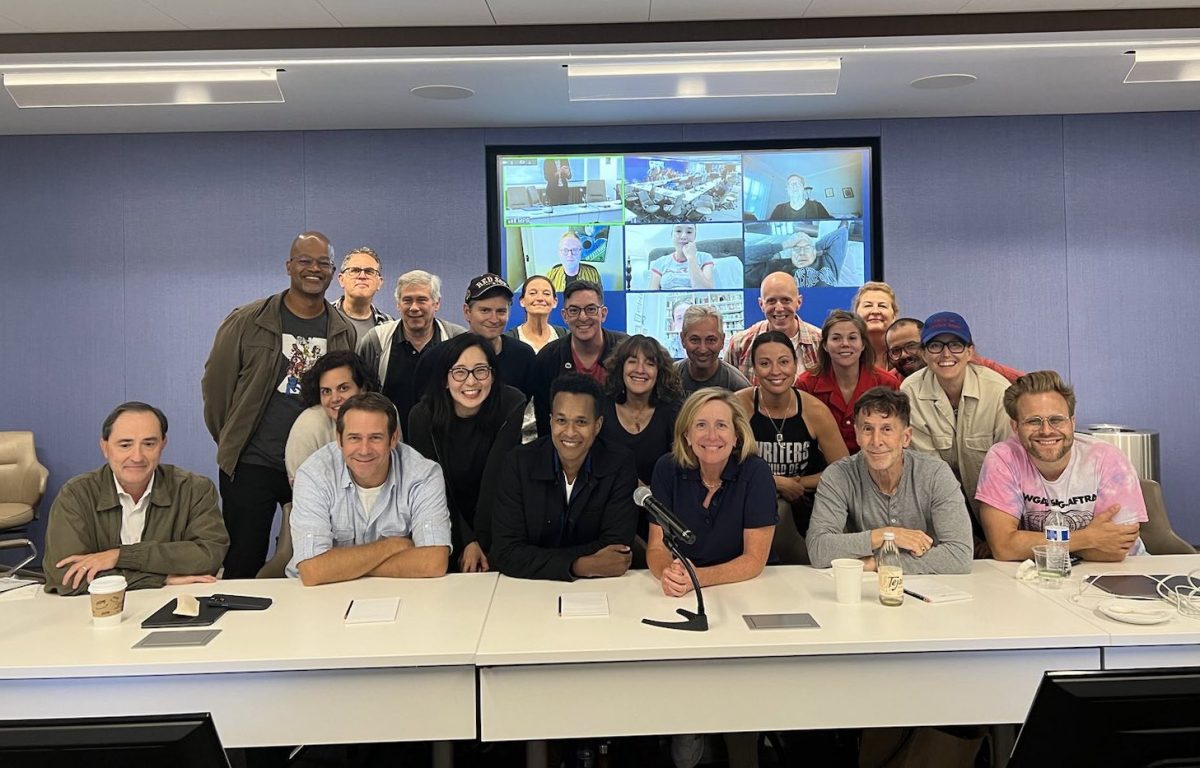On October 9, 2023, members of the Writers Guild of America (WGA) voted to ratify an agreement with the Alliance of Motion Picture and Television Producers (AMPTP). The resolution ended a 148-day strike, the WGA’s longest labor stoppage in 35 years. Writers of the LACES community prepare to return to work, even as the SAG-AFTRA remains on strike.
“I knew we were going to win because our cause was righteous and we needed it much more than [the corporations],” said Ari Voukydis, father of 8th and 6th graders Rex and Ajax Voukydis. As a comedy writer, he’s worked on Amazon TV’s “Ring Nation” and has been developing original comedy screenplays in recent years. “The industry’s also trained us to endure so much nonsense. Even the most successful writers will go years without working on anything.”
Director-writer Lee Farber, father of LACES sophomore Eloise Farber, welcomed the news. As a longtime member of the WGA, he has won awards his work on the TV show “The Wayne Brady Show” and the film “The Lonely Italian.”
“These are significant financial gains in terms of minimum salary and residuals,” Farber said. “This will go a long way towards helping writers earn a decent living in the industry.”
Farber noted that although the final deal didn’t include any “glaring omissions,” he wishes more language regarding streaming-based payment were included. When Untied previously spoke to him prior to the resolution, he emphasized the necessity of corporations paying workers based on film and TV’s streaming success — a practice known as residuals.
“I was hoping for full transparency from the streamers as far as number of views of each show,” Farber said. “But the success-based residual that was negotiated is a good start.”
The use of artificial intelligence was another topic of contention leading up to and during the stoppage. Given AI programs’ ability to generate seemingly human-written content, writers pushed for restrictions on its use alongside their original work.
“AI can really be used as a tool by uncreative people to replace creative people,” said Voukydis. “It’s like having a well-educated assistant with no practical real-world experience. But they wanted to use AI to replace writers, in a sense.”
Voukydis explained that in a traditional writing process, studios pay writers for each revision of a screenplay they submit. However, AI services’ explosive popularity and promise prompted both parties to consider how studios could exploit such technology.
In their Memorandum of Agreement, the WGA outlines restrictions on studio behavior if they provide writers with AI-generated material to base creative work upon. The memorandum states that AI material cannot be considered source or assigned material in “determining the writer’s compensation” or “writing credit.”
“The language surrounding AI is certainly positive and will protect writers for the time being,” Farber said. “But no one really knows how ‘future-proof’ that language is.”
During the labor stoppage, Voukydis said he could not market any of the work he’d written for sale to directors or producers. However, with the resolution, he looks forward to fully returning to work.
“When the labor stoppage was happening, my writing partner and I were writing the whole time, but we didn’t show anybody [our work]. So we’re just trying to build up stuff so that when the stoppage ended, our reps could go and pitch us [to studios],” Voukydis said.
Although writers across the nation celebrate the long-awaited resolution, LACES community writers believe the fight is not yet concluded.
“The job is only half done, and we need the actors to get resolved as well,” Voukydis said. “I can write everything I want, but my wife is an actress and she’s still on strike.”
Farber also remains cautious about the future for laborers in the American film industry.
“The studios will always be looking for ways to increase profits,” he said. “If that means finding loopholes in the existing contract, then that’s just a battle we’ll have to fight next time around.”
















Ajax • Oct 25, 2023 at 5:13 pm
This is amazing and definitely not because I’m one of his kids *wink wink*